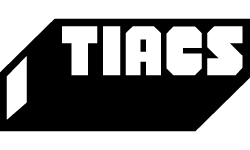There are not many people these days that can say they haven’t experienced either for themselves or know someone…a work mate, friend or family member…affected by mental illness. That’s why it’s important to share as much information as possible so we can better understand it and more importantly know how to respond to it. This fact sheet helps with the first part – understanding mental health.
What Is Mental Health
Mental health is a state of wellbeing that allows you to deal with challenges in your life. It’s about feeling strong, living your best life and connecting with others in a positive way. When our mental health is on track we can:
- Cope with the stress’s life throws at us
- Feel a sense of achievement in our personal and work life
- Connect with others well
- Participate and contribute to our community (whether that’s the local footy club, gym, workplace or whatever space and place you connect with)
What We Know About Mental Illness
Often the terms ‘mental health’ and ‘mental illness’ are used in the same way but they’re actually different things. Mental health means our general wellbeing as mentioned above, a mental illness is a condition that can affect the way you think, feel, behave and interact with others.
Anxiety and depression are the most common mental illnesses in Australia.
Mental health issues are actually very common. One in five Australians may develop a mental health condition (mental illness) at some stage in their lives. Everyone is vulnerable to mental health problems. It affects people regardless of age, education, income or culture. Fact: A mental illness is not a character flaw.
Why Don’t People Want To Speak About Mental Health?
There is a lot of judgement around mental illness. People tend to believe it is incurable or fear being judged or permanently labelled. Some people who experience mental health conditions don’t talk about it because they don’t want to be a burden on others, or they feel like they’re a failure or are just not use to talking about feelings.
We can all play a part to better understand mental wellbeing and mental illness and break down barriers and myths by:
- reading from reliable sources about the facts and myths on mental illness
- learning about the signs and symptoms of various mental health conditions
- starting and keeping the conversation going
- reaching out and talking to people we know about their experiences and our own
- getting advice from professionals
We have some great fact sheets to help you get that conversation started. Look at:
- Fact Sheet – How to Start the Conversation one on one
- Fact Sheet – How to Start the Conversation in the workplace
TIACS 0488 846 988 offers free, confidential and accessible counselling both over the phone and text to truckies, tradies, blue collar workers and those who care about them. Mon-Fri 8am -10pm AEST






